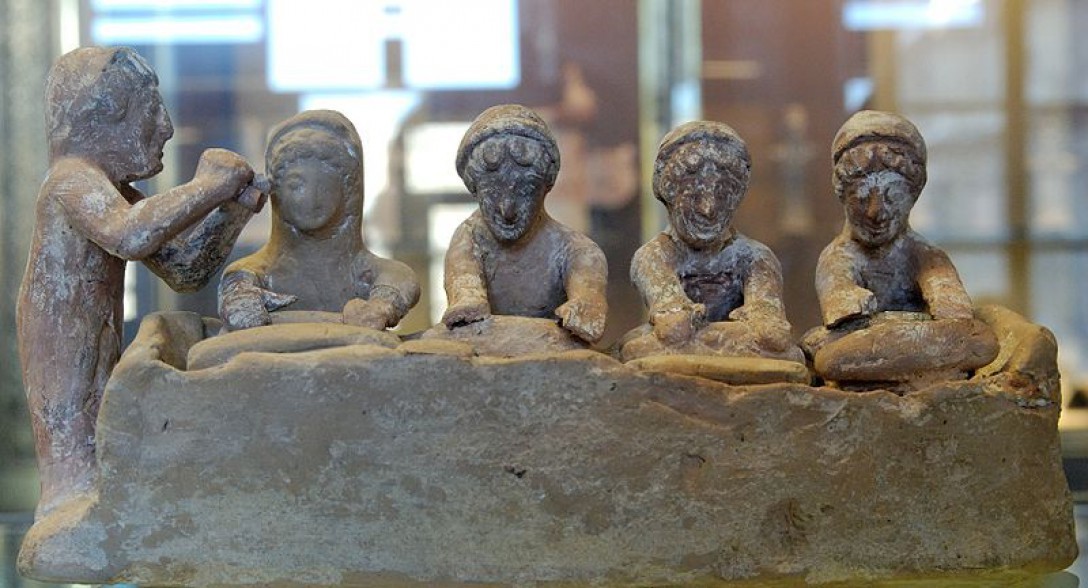Food does not simply keep us alive· it is at the centre of social life.That’s why it links us to others or separates us from them. Flora and fauna, ideological and social orientations, religious beliefs, traditions, prejudices bring us together through food. At the same time food discriminates regions, social classes, religious teams, men, women and children.
Greece is a mountainous, rocky landscape with a few pieces of fertile land. This means that Greeks had to use the production of this land quite inventively. In some areas meat and dairy products played the primary role, in other areas olive oil, legumes and greens· cooked in different ways. In that rocky country many Greeks found much of their food in the sea.
The lack of fertile soil had another result: it formed the immigration as an important characteristic of Greek history. But immigrants, as merchants and conquerors, adopted elements from foreign culinary cultures and imported them to Greece. They imported new kinds of fruits and vegetables, too. Long lasting conflicts, invasions and a four hundred Ottoman domination also left their marks, although the influence was mutual.
So, for a very long time Greek cooking was heavily dependent on its local products and religious dietary laws· the influence from other cultures and factors such as wealth and power are worth mentioned. Unfortunately today modernism and a mediocre ‘international’ cuisine have taken a lot of traditional foods eaten by Greeks. Nevertheless in some remote villages you can still find the tasty cooking which links to the culinary past.
Copyright © 2007 historyofgreekfood.com

